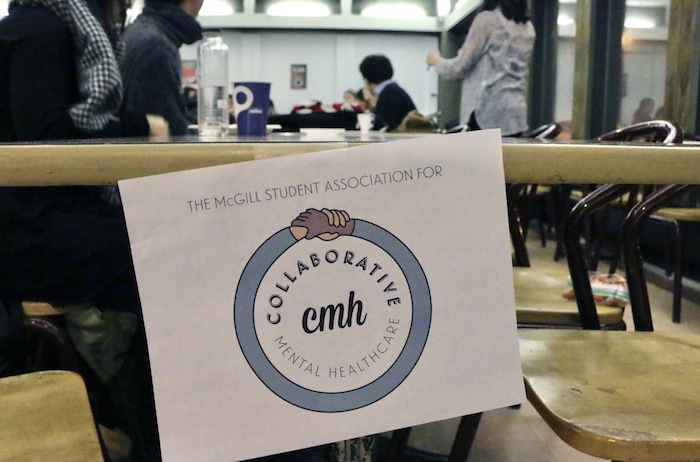From Jan. 23 to 29, the Students’ Society of McGill University (SSMU) held workshops, screened movies, and distributed cupcakes in order to spark conversation about mental health across campus during the fourth annual Mental Health Awareness Week. There were several additional contributors to the campaign this year, including the Peer Support Centre, the McGill Office of Religious and Spiritual Life (MORSL), and McGill Counselling and Mental Health Services (MCMHS).
According to Alyssa Wooster, U2 Arts and peer health educator for mental health at Healthy McGill, mental health awareness at McGill has been gaining recognition in recent years.
“Many students are struggling,” Wooster said. “For lack of a better word, mental health has become more of a ‘buzzed’ topic on campus as [people are] realizing it’s a prominent issue.”
McGill Student Services Mental Health Education Coordinator Tamara Cassis said that mental illness and mental health are on two separate, yet closely related, continuums.
“Mental health can fluctuate with things like sleep or life stressors, and mental illness is something diagnosed in the DSM [Diagnostic and Statistical Manual],” Cassis said. “I like to compare it to Type 1 diabetes. You can have Type 1 and be managing your insulin well, but you’re still diabetic.”
On Jan. 26, Cassis and Chloe Rourke, also a McGill Student Services Mental Health Education coordinator, led the Motivation and Self-Determination Workshop. The workshop discussed theoretical concepts, such as the spectrum of motivation and the three fundamental psychological needs, and how they can be applied to daily life.
Cassis and Rourke said that according to Self-Determination Theory, the three basic psychological needs are autonomy, relatedness, and competence. People are more likely to be intrinsically motivated when they thrive in these fundamental areas. In turn, with intrinsic motivation comes good mental health. Making time for the things you love to do has a positive effect on other aspects of your life as well. In support of this, Rourke said that maintaining interpersonal relationships optimizes students’ mental health.
“Paradoxically, the competitive environments that we’re in as students aren’t good for our productivity,” Rourke said. “We have to make time for connections. Close relationships increase our overall mental health, which increases our productivity.”
Several different types of motivation were outlined by Cassis and Rourke, including acting for the intrinsic value of the action itself. According to Cassis and Rourke, it is important to preserve intrinsic motivation as it tends to fade throughout life.
Rourke said that what makes mental health such a vaguely understood concept for many is its lack of empirical certainty. For example, the notion of relatedness refers to our need for close relationships with others.
“The subjective sense of need is what matters,” Rourke said. “I can’t measure your relatedness. I can only measure how related you feel.”
The Wellness Recovery Action Plan (WRAP), a six-week program facilitated by students who have experience overcoming obstacles in mental health, was highlighted during the week. The program, developed in Vermont in the late 1990s, is designed to provide participants with concrete and personalized tools to improve their mental health.
According to Cassis, who is also a facilitator of the WRAP sessions, the WRAP approach is an effective way to maintain good mental health on a daily basis.
“I’ve found it very helpful,” Cassis said. “Moments where I could’ve easily gone into a depression, I didn’t. It really makes a difference.”
As of Winter 2017, students can now sign up for WRAP without being referred by MCMHS.








